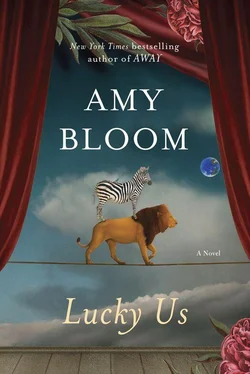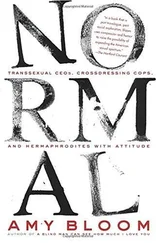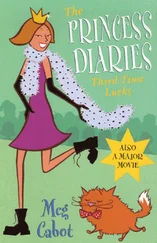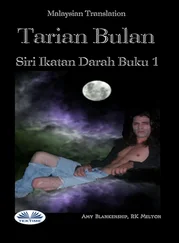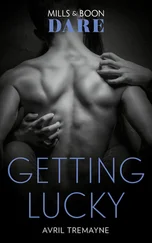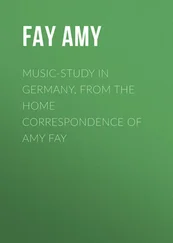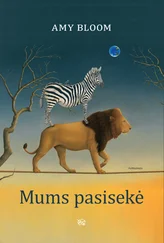My father handed me a pile of the Little Blue Books on English literature and then, when he got tired of butler questions and Francisco stopped doing his Arthur Treacher imitations, my father made me quiz Iris on the Shakespearean plays and the sonnets. You don’t have to actually know, he said. You only have to know more than they do. A little self-discipline is all that’s required, he said. One hour before bedtime to stay ahead. Same for you, he said to me, but I didn’t know who I’d be staying ahead of.
I peppered Iris every day. Who was Beatrice? Why was she so mean to Benedick? What was The Tempest about? When Iris stumbled, my father would roar whole soliloquies at her. When we couldn’t stand it anymore, I’d read aloud from one of the other Little Blue Books.
The Little Blue Books were little marvels. The Art of Reading. The Egypt of Yesterday. Balzac’s Short Stories. A Guide to Aristotle. My father said that there was not a single thing an educated man — even a gentleman — needed to know that was not in one of the thousand Little Blue Books. Emanuel Haldeman-Julius created the Little Blue Books, my father said, and he was a genius. A Jew and a socialist and a genius. He was not one of Nature’s aristocrats. When you hear that phrase, my father said, they mean the peasant who did them a favor, some gobshite by the side of the road whom they’ll never see again. Believe me, darling, they do not mean the Jewish gentleman whom we have just invited to join our country club. Later in my life, in fact, for my whole life, I’ve relied on the Little Blue Books to finish my education, and I saw why my father loved them so.
Every night, in the motels, I wanted to take a shower and wash my hair, and I couldn’t bring myself to do it while the other people sat in the next room, listening and waiting. My father and Francisco used the bathroom. My sister used it for hours and came out, her face lit up with cold cream, her hair in tight pin curls. I could sit there just long enough to pee.
On our last day on the road, I turned fifteen. I waited for someone to remember and then, finally, around the middle of the day, I said, during a lull, Oh, happy birthday to me, and Francisco pulled off the road. My father got out of the car and hugged me and my sister and Francisco kissed me on both cheeks and right in front of a Burma-Shave sign, they sang “Happy Birthday.” My father said that we needed to celebrate and we stopped for lunch, which we usually didn’t. We all had Coca-Colas and the house special, which was ham sandwiches on homemade bread. (“Those are our own pigs too,” the waitress said. “Marvelous,” my father said, and he winked at me.) My sister put her silver barrettes in my hair and Francisco went into his makeup box and gave me a tube of red lipstick. My father said he would wait until we got settled to give me my birthday present. I thought maybe they would spring for two rooms and dinner out but my father and Francisco went to an all-you-can-eat chicken dinner (“And they watch you like hawks,” Francisco said) and lined their pockets with waxed paper and napkins. They came back to the room with chicken legs and drumsticks and squashed biscuits and Iris and I ate everything, sitting on the floor of the motel room. We slept the way we always did, and in the middle of the night, I woke up and saw my sister leaning next to Francisco on the floor. I tiptoed to the bathroom, bumping the wall as I went.
“We can see you, birthday girl,” my sister said.
I said I didn’t want to bother them.
“Oh, it’s fine,” Francisco, said. “We’re just passing the time. Iris is in mourning for her life!”
“Not a chance,” she said. “Turn me loose.”
Iris cozied up to Francisco and my father slept on. I went back to bed.
OUR LITTLE PIECE OF Hollywood hadn’t been much like Windsor, Ohio, but East Brooklyn was like Mars. I kept my head out of the window to get a good look at the apartment buildings fifteen stories high and the wide boulevards, the sidewalks crammed with people in a hurry, buses and trains running right through and across the city, restaurants with awnings, Chinese food and Greek food and Polish food and Italian food, nice houses like my father’s in Ohio, and small shabby houses so close to their neighbors they could pass each other breakfast. It had a hat factory, now making helmets for the war, an elevator factory, and a carpet mill, women in pants going to and from the factories, and thousands of people minding their business, which was definitely not show business.
We walked up two flights of stairs, and Francisco’s sisters threw themselves on him, like he was back home from the front. They hugged Iris and me in a friendly, mechanical way and they eyed my father.
Looking back, I forgive them everything. They took in a skinny fifteen-year-old girl with thick glasses and a stubborn look and her sister, a stuck-up former starlet (with a former starlet’s ways) and a snooty Englishman with fancy manners and nothing else. They gave us beds and dinners and they stayed out of our way during the next days’ fierce cram session for the job interviews in Great Neck. When Bea suggested that my sister would look more governess-y (whatever that was; we were six people who had never seen an actual governess or a home that required one) with less red and more mouse brown, the two of them went up to Bea’s apartment and my sister came down looking like Olivia de Havilland. I’d never seen a husband, but I thought that both sisters were married, because they both wore wedding rings. Iris said I was an idiot and that anybody, including me and Francisco, could wear a wedding ring and no one could prove them a liar.
It’s the great thing about the war, she said. Anyone can be anyone.
BEA ASKED ME IF I wanted to get out and walk around the neighborhood while Francisco and my father did the last round of Emily Post’s rules for modern living and my sister recited Shakespeare and the forty-eight states. Carnie gave me twenty-five cents to go. I walked up to the corner store and bought some Turkish taffy. I walked around the block a few times and crossed the street, over toward some bigger houses and bigger trees and past a big brick building the size of a hospital or a high school. It had a big Jewish star over the tall white doors and Hebrew letters carved into the corners. The white wooden sign said PRIDE OF ISRAEL ORPHAN HOME. Around back, there was a playground, with a slide and a jungle gym and a teeter-totter. There were fifty kids playing in it. There were a bunch of boys around my age, playing baseball. The leather flapped when they hit the ball. It rolled toward me, and one of biggest boys, tall and blond, scooped it up and eyed me, then threw it to the pitcher.
“You ain’t in school,” he said. I walked to the corner of the building, leaned one hip against the brick, and ate my long roll of taffy. When the tall blond boy caught the ball again and tagged some short, fat kid out, he pushed back his hair and looked at me again. I took an actress pose, leg bent against the brick, arms folded. I put my glasses in my pocket and let him see my profile.
I walked past the orphanage every day. I kept my eyes open for the tall blond boy. These were my people: the abandoned, the unloved, the phenomenally unlucky. Plus, they were Jews, and my age, and their cousins were being slaughtered every day in Europe. Germans could even come and invade and slaughter them here in Brooklyn. They, like me, must be worrying all the time. Sometimes I liked thinking about how brave I would be if I were facing Germans. I knew that it was disgusting to contemplate my own bravery and, even worse, I knew the brave one would be Iris, flirting with the Nazis, stuffing passports into her bra to save the old people and the Jewish babies. I’d be sitting on some staircase somewhere, with my nose in a book, squeezing against the banister when they came running past me.
Читать дальше
